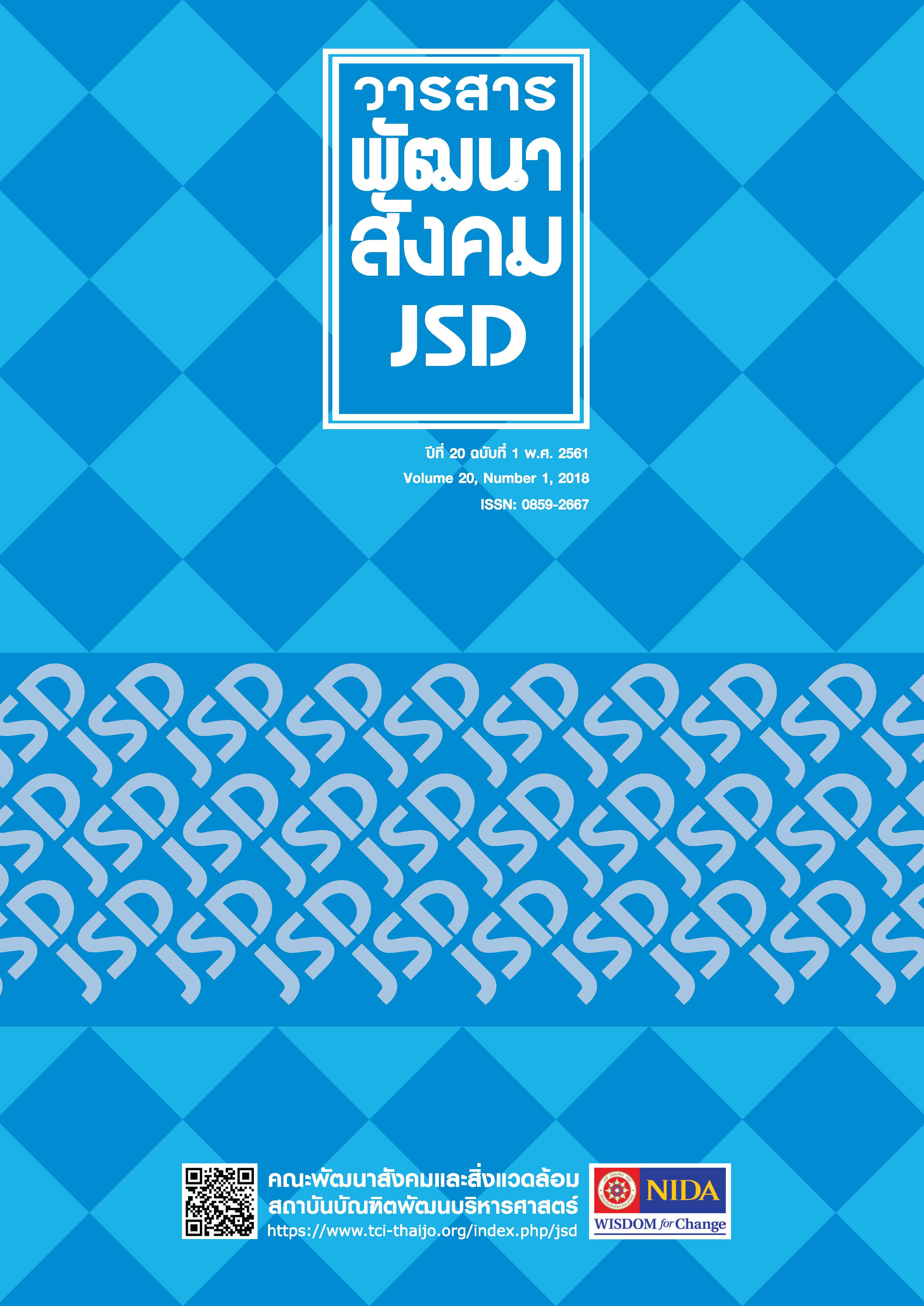The Status and Approach to Early Childhood Education Policy Development for Children of Ethnic Groups: The Case study of Mae Sot District, Tak Province
Main Article Content
Abstract
This research aims to explore a policy status, development approach and model of early childhood education for children of ethnic groups living in Mae Sot District, Tak Province. The qualitative research methodology was employed and the findings were as follows: first, prior to 1957, an early childhood education policy for children of ethnicities had corresponded to international agreements and national policies. Although a policy content had been developed, there was a problem of policy implementation. Second, local governments in Mae Sot district were responsible for a provision of early childhood education for children of ethnic groups regarding equality and humanity. However, they had faced problems of non-registered population, the increasing numbers of ethnic children and policy aspects. Third, a policy development approach should embrace identification of necessity development importance, content and process development, and implementation guidance regarding principles of decentralization, power, justice and participation. Fourth, a policy model should be developed through four processes which includes policy and context review, policy agenda identification, policy design and participation.
Article Details
References
2. Cafcass. 2007. Policy Development framework. Chelsey Bonehill.
3. Committee on Children, Youths, Women, Seniors and Disabled People Affairs. 2014. Guidelines for early childhood development. Bangkok. 4 pages.
4. Committee on Human Rights and Consumer Protection. 2013. Fieldtrip Summary: Human rights and managing ethnic groups in Thailand. 13-15 August 2556 at Sai Yok District, Kanchanaburi Province. Senate, Bangkok. 9 pages. Communities Impacting Policy.Halifax: Dalhousie University.
5. Dukeshire, S. and Thurlow, J. 2002. A Brief Guide to Understanding Policy Development for Rural Education. Guidelines for policy Development and Implementation. Ontario: Ministry of King Prajadhipok’s Institute. 2011. Seminar summary report on guidelines to launch a special local government form: Nakhon Mae Sot. King Prajadhipok’s Institute, Bangkok. 261 pages.
6. Kongchantuek, S. 2016. Former head of subcommittee on human rights fornationalities, statelessness,migrant laborers and diasporas. (4 May 2559). Interview.
7. Ministry of Education. 2005. Summary report of Ministry of Education Regulations on evidence of student admission of educational institutions B.E. 2548. Ministry of Education, Bangkok. 4 pages.
8. Ministry of Education. 2009. Guidelines of educational provision for non-registered or non-Thai nationality population. The Agricultural Co-operative Federation of Thailand Publishing Ltd., Bangkok. 191 pages.
9. Ministry of Social Development and Human Security, Chulalongkorn University and United Nations Development Program (Thailand). 2013. Human Security Strategies B.E. 2556-2560. Ministry of Social Development and Social Security, Bangkok. 50 pages.
10. Ministry of Social Development and Human Security. 2015. Master Plan of Ethnic Groups Development in Thailand. Ministry of Social Development and Social Security, Bangkok. 51 pages.
11. Office of Primary Education Area, Tak Province Area 2. 2016a. Annual Report of Office of Primary Education Area, Tak Province Area 2, Fiscal Year 2558. Office of Primary Education Area, Tak Province Area 2, Tak. 102 pages.
12. Office of Primary Education Area, Tak Province Area 2. 2016b. Educational Provision of Migrant Educational Coordination Center. Office of Primary Education Area, Tak Province Area 2, Tak. 19 pages.
13. Office of the Auditor General. 2003. A Guide to Policy Development. Manitoba: Civil.
14. Office of the Basic Education Commission. 2011. Thai Children Future of Child Rights. Ministry of Education, Bangkok. 148 pages.
15. Office of the Education Council. 2013. National Strategic Plan on Early Childhood (newborn to pre-Prathomsuksa 1) in accordance with the Government Policy of Early Childhood B.E. 2555-2559. Ministry of Education, Bangkok. 52 pages.
16. Ontario Public Service. 2014. Equity and Inclusive Education in Ontario Schools.
17. Organisation for Economic Co-operation and Development. (2008). Ten steps to equity in education [online]. Accesses on 24th August 2015, available at: http://www.oecd.org/education/school/39989494.pdf
18. Rawls, J. 1972. A Theory of Justice. Cambridge: Harvard University.
19. Sangkaew, B and Phookpan, P. 2017. Research Report on Status and development approach to early childhood education policy for children of ethnic groups: The case study of Mae Sot District, Tak Province. Bangkok: Suandusit University. 125 pages.
20. Tak Provincial Office. 2005. Tak: The Land of Four Great Kings. Tak Provincial Office, Tak. 116 pages.
21. Thaiwanasri, Anothai. 2016. Director of Office of Primary Education Area, Tak Province Area 2. (23 May 2559). Interview.
22. The Life Skills Development Foundation (Rak Dek). 2015. Child rights in Thailand. 29 January 2558. Available from: http://www.rakdek.or.th/th/news.
23. The Secretariat of the House of Representatives. 2012. Child rights in accordance with the Constitution. The Secretariat of the House of Representatives, Bangkok. 50 pages.
24. Tongkum, B. 2016. Director of Education, Religion and Culture Division. City of Mae Sot. (13 May 2016). Interview.


